Haifa’s businesses struggling as war stretches further into Israel
The Israeli city, 32km from the Lebanese border, is facing barrages of more than 100 rockets a day since Israel assassinated Hezbollah leaders last month.
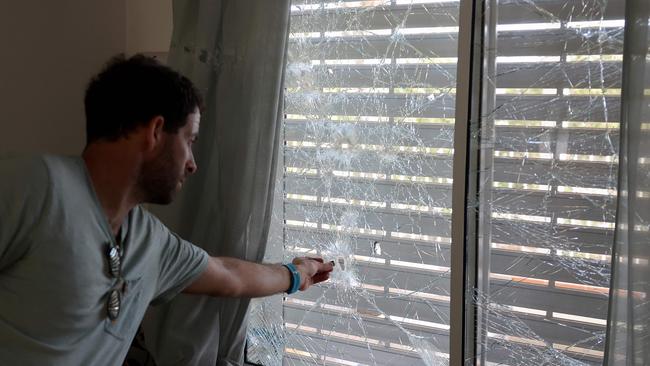
From the hills of southern Lebanon, the arc of an incoming rocket was traced by a chasing air defence missile before the thump of an Iron Dome interception told residents of Haifa, Israel’s third-largest city, that they were under attack.
The dogfight, thousands of feet above the bay, appeared as a terrifying duel of soaring thrusts and parries when watched this week from Mount Carmel, the steep summit that dominates the port. Puffs of white smoke filled a cloudless sky and a spark, momentarily brighter than the Mediterranean sun, ignites like a firework as the interceptor finds its mark.
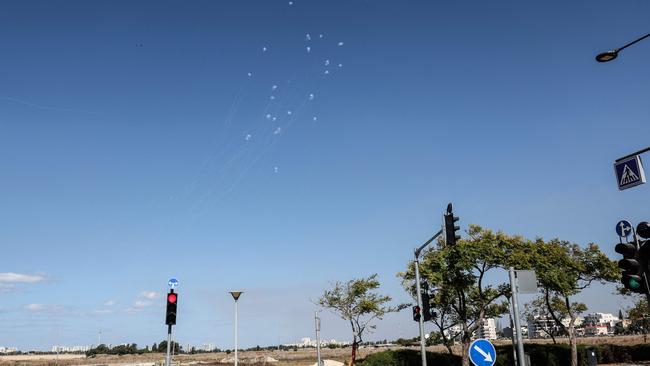
Until a few weeks ago Haifa, a city of more than one million people, 20 miles from the Lebanese border, was spared Hezbollah’s attacks after the October 7 massacre, which largely targeted villages just across the so-called Blue Line dividing the countries.
But that came to a dramatic end last month when Israel assassinated Hassan Nasrallah, the leader of Hezbollah, and began repeatedly bombing the militia’s strongholds in the Beirut suburb of Dahiyeh and the Beqaa valley in the east of Lebanon.
The escalation has prompted Hezbollah to launch deeper strikes into Israel and now, Haifa, the country’s largest port, is facing barrages of more than 100 rockets a day.
“The uncertainty of this situation is probably the most difficult thing,” Noam Werner, 56, the manager of Haifa Zoo, said. “It’s been almost a month since we closed.”
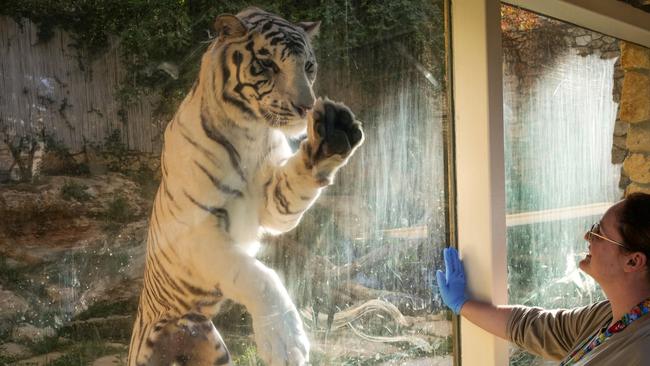
The Jewish festival of Sukkot is one of the busiest times of year for the zoo, but it has remained shut throughout, and concerns are mounting for Werner, who still needs to pay his staff and feed his animals despite receiving zero income since the war in Lebanon began.
Moments before the air alarm siren sounded, the white Bengal tiger was doing laps of his enclosure, alerting zookeepers to the arrival of rockets.
Fearsome though he may be, Pierre, the 16-year-old tiger, is no less vulnerable to shrapnel than the rest of the population, and he retreats to his feeding cage to await the all-clear.
Benjamin Netanyahu, the Israeli prime minister, has said the aim of the war in Lebanon is to return 60,000 Israelis from frontier communities such as Kiryat Shmona, Shlomi and Metula, less than a few kilometres from the border, to their homes.
There is financial pressure to expedite their return since the government is subsidising the cost of housing displaced Israelis.
But the longer the full-blown war continues, the danger grows that Israel exposes a larger swathe of its economy to attacks.
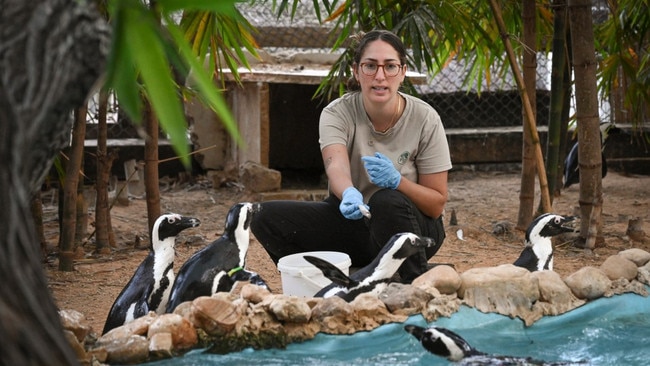
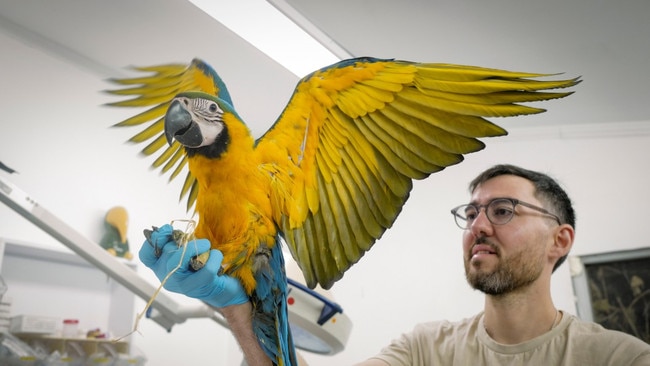
In Haifa, business is slowing down and the streets are quiet.
At the zoo on Wednesday, ruffed lemurs performed acrobatics to no one and the Cape penguins waddled around without their usual audience of laughing children. A macaw called Rio had to be treated by vets for suspected concussion after flying into the glass having been panicked by air raid alarms.
In his final speech, Nasrallah responded to the explosion of Hezbollah pagers and booby trapped walkie- talkies by vowing to prevent the return of evacuated Israelis to northern Israel – and to increase the numbers who would be forced to flee.
“The only way to return the displaced to the north is to stop the aggression on the Gaza Strip and the West Bank,” he said.
There is no sign yet of an exodus from Haifa and the city is better protected than the last time it came under attack during the 2006 war in Lebanon, when one of many Hezbollah rockets sent shrapnel flying across the camel enclosure of the zoo.
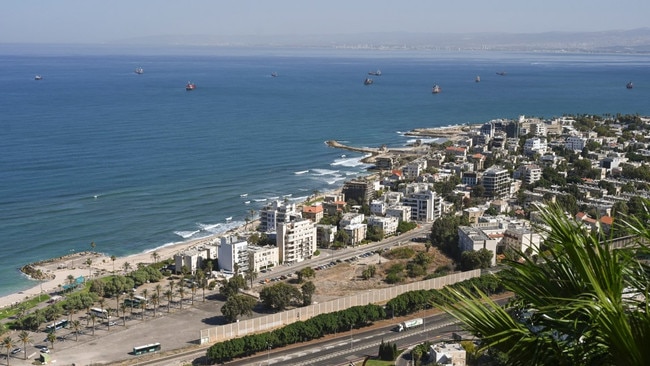
The arrival of the Iron Dome in 2011, a short-range interceptor with a 90 per cent hit rate, has revolutionised Israeli air defences and the country’s generals have faith that the civilians will be sufficiently protected for them to inflict a lasting blow on Hezbollah.
There has only been one civilian fatality from the recent barrages. Alexei Popov, 51, a resident of the Haifa suburb of Kiryat Haim, died outside the town of Acre, but four Israeli soldiers were killed in a drone attack on a base near Binyamina, a town 32km south of Haifa, last week. However, several others have been wounded by shrapnel.
Tal, 20, a corporal in the Israeli navy knows he is particularly at risk as someone living in barracks in Haifa.
Waiting to be picked up at the city’s train station, he remained supportive of the offensive in Lebanon despite the uncertainty about how long his home town could be dragged into war. “Israel is making important moves in this war – it could take months, perhaps a year,” he said. “But I think it’s worth it.”
The Times


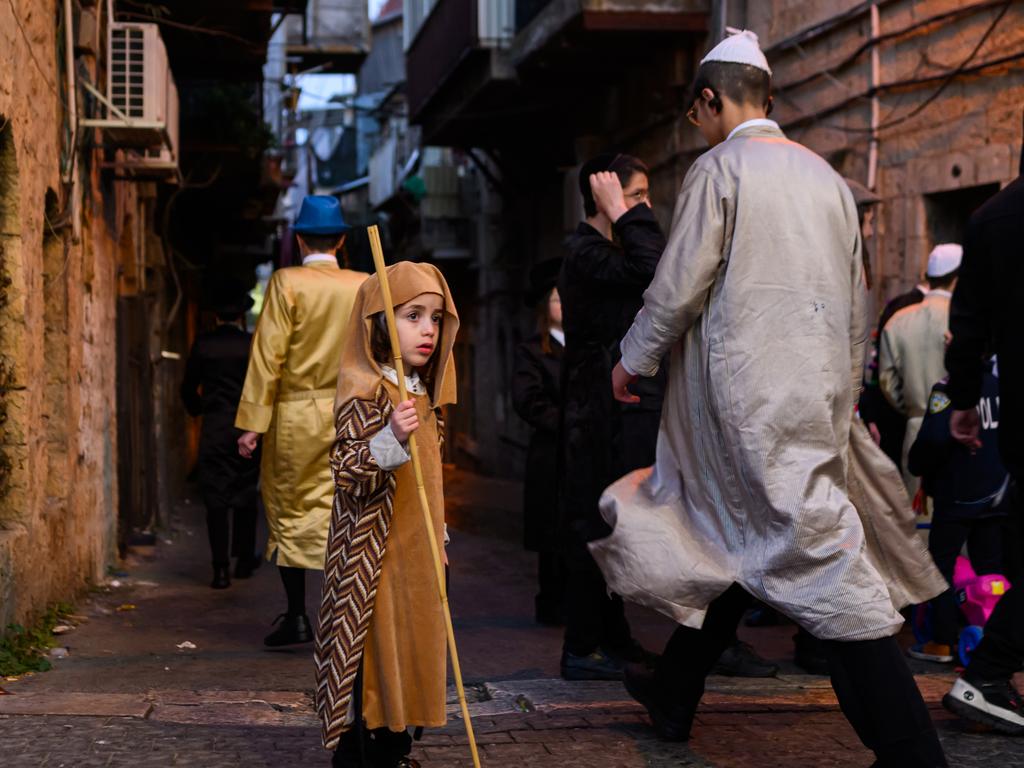


To join the conversation, please log in. Don't have an account? Register
Join the conversation, you are commenting as Logout